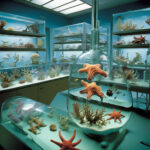Since 2011, Rémi Quirion has been an influential figure in the research landscape of Québec as the Chief Scientist, an essential role that bridges the gap between scientific discovery and public policy. His core responsibilities include advising the Minister of Economy, Innovation and Energy on matters related to research and science, and issuing scientific opinions that inform governmental decisions. With an eye on fostering scientific knowledge and developing international research partnerships, Quirion’s initiatives are crucial in ensuring that Québec’s research community not only thrives within Canada but also finds a place on the global stage.
A major step in advancing scientific diplomacy came in October 2024 when Université Laval signed a groundbreaking agreement with Sorbonne Université to establish a research chair focused on science diplomacy. This initiative marks a strategic effort to integrate science into public policy, advancing an agenda that addresses both local and international challenges.
The Fonds de recherche du Québec (FRQ), which Quirion leads as president and CEO, plays a fundamental role in supporting scientific inquiry across three key sectors—Nature and Technology, Health, and Society and Culture. Recently, these previously distinct agencies merged to maximize synergies among various research fields. This integration positions Québec as a vital player in areas ranging from quantum sciences to health policies, allowing for comprehensive exploration of pressing societal challenges.
One area where Québec truly excels is in quantum research. Notably, Professor Alexandre Blais of Université de Sherbrooke is making strides in quantum computer architectures, thanks to funding from the FRQ. This reflects a commitment to nurturing talent and innovation, especially among young researchers. The agency’s annual scholarship programs at the master’s, doctoral, and postdoctoral levels specifically target emerging talent, ensuring that the next generation of scientists is well-equipped to tackle complex challenges.
But it’s not just about individual research projects. The FRQ understands that many of today’s issues—like climate change and demographic shifts—require intersectoral collaboration. Hence, they promote the formation of scientific research groups that transcend traditional boundaries. For instance, the International Observatory on the Societal Impacts of AI and Digital Technologies (OBVIA) addresses the societal challenges posed by technological disruption, while the Québec Intersectoral Flood Network (RIISQ) focuses on innovative solutions to manage flood risks exacerbated by climate change.
Supporting innovative thinking extends to the AUDACE program, which funds high-risk, high-potential projects. One exemplary initiative is Urgences rurales 360, led by Université Laval’s Richard Fleet, which uses circus arts to engage communities and raise awareness about healthcare access issues in rural areas. By using a unique approach to discuss urgent problems, the project highlights the FRQ’s commitment to creative solutions.
Citizen involvement is equally crucial, as demonstrated by the ENGAGEMENT program, which encourages participatory science where citizens co-direct research with academic experts. Projects have included studies to optimize maple sap tapping techniques, and investigations of pollution emissions affecting local communities. Such participatory models not only amplify research outreach but also elevate the significance of experiential knowledge in scientific dialogue.
Moreover, the FRQ actively works to counter misinformation about science through the REGARDS–SDG program, which helps students create projects aimed at discussing the United Nations Sustainable Development Goals with young people. Engagement with the public is not limited to misinformation alone; the DIALOGUE program grants funding for innovative outreach projects that bridge the gap between researchers and the community.
As part of their broader efforts, the FRQ has demonstrated a commitment to enhancing the role of scientific opinion in government affairs. A training course called L’interface provides scientists with the tools to navigate public policy effectively, hence strengthening the connection between research and governance. With increasing numbers of municipalities hiring science advisors to address local issues, it is clear that the demand for scientific expertise in decision-making processes is on the rise.
Internationally, the presence of Québec in the global scientific community is growing through initiatives like the scientist-in-residence program, which places researchers in international offices to foster collaborations. Whether in Asia, Africa, or Europe, these scientists contribute to fortifying Québec’s status in science diplomacy.
The establishment of the Grands Sages awards in 2023 highlights the importance of mentorship in the scientific community. By connecting rising stars in research with established figures, these awards aim to inspire up-and-coming scientists in their pursuit of knowledge. Similarly, the Relève Étoile Award recognizes exceptional graduate students in various domains, reinforcing the agency’s commitment to nurturing talent.
The push for innovation doesn’t stop in academia. The FRQ encourages emerging researchers to explore unconventional career paths, providing support through initiatives like the Québec Scientific Entrepreneurship Programme (QcES) and partnerships with organizations that help startups innovate. Success stories, such as Simon Lafontaine’s eco-friendly meat production venture, illustrate the agency’s commitment to merging scientific research with entrepreneurship.
While Québec has proven to be a nexus of scientific achievement, challenges remain in productivity and innovation. The 2022-2027 Québec Research and Innovation Investment Strategy (QRIIS²) is a strategic response to streamline processes and facilitate greater collaboration in research. By fostering a culture that values free inquiry and fundamental research, the strategy aims to revolutionize how the province approaches scientific innovation.
In conclusion, under the stewardship of Rémi Quirion, Québec is poised to remain at the forefront of scientific advancement. By nurturing young talent, promoting interdisciplinary research, and enhancing the relevance of science in public discourse, the FRQ is not merely participating in the global research landscape; it is shaping it for future generations. The work being done today echoes the important truth that science is not an isolated endeavor but a collective pursuit that, when effectively managed, can yield transformative results for society.











